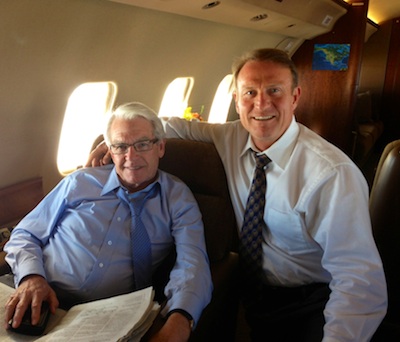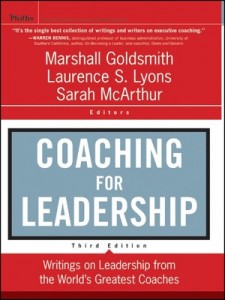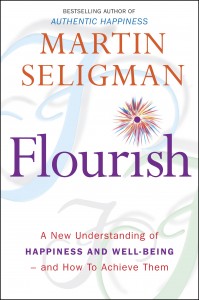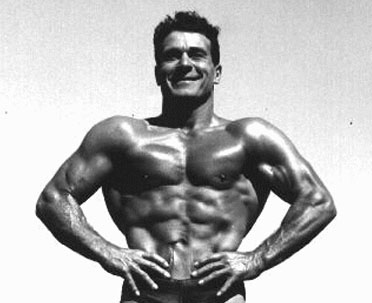There are three things that galvanize trust. In our research, we identified 37 different variables of trust, but three things stand out more than the others. We call them the 3 R’s of Trust – Responsibility, Reliability and Responsiveness. When something goes wrong – as things inevitably do in any business – we have to be RESPONSIBLE for it. We have to step up, take responsibility and then take action to make things right. RELIABILITY – An admired brand should have an ‘implied guarantee.’ Customers expect high quality products, products that a company will stand behind, so RELIABILITY is key to trust and customer loyalty. A new PhD at Stanford did a study on the difference between “guilt” and “shame”. People who expressed “guilt” when they made a mistake were the first ones to get up and do something about it. They are the first ones to make something happen, make it better, be responsible. This impulse to take action is the third key factor in trust – RESPONSIVENESS. Shame, on the other hand, is saying, “Circumstances were out of my control,” or, “It was out of my hands…it’s her fault…or their fault”. Shame is the “blame game”.
From the outset, when Richard Branson suggested that he was going to start an airline, people didn’t believe that he would succeed. Branson said that his Board of Directors was “apoplectic” when he set out to start Virgin Atlantic, but in his heart he knew that someone must be able to make traveling on airlines a more pleasant experience. On the first flight of Virgin Atlantic Airlines, Sir Richard Branson had the plane packed with dignitaries, press and VIP’s. The plane had just arrived from Boeing, hadn’t gone through full inspection and less than a minute into the flight one of the engines exploded with a bang and the plane had to make an emergency landing.
A couple of days later, Richard’s banker appeared at his home and told him that he was pulling all of the funding and going to put the airline out of business. “I just shook,” Branson said, “I couldn’t believe he was willing to put 5,000 people out of their jobs and out on the street so quickly.” When the crisis first hit, Richard said that he put all of his energy into finding out who to blame – but quickly realized that no matter how much he blamed the banker or the explosion or anyone else, he still had to deal with the issue. As a leader, your top priority has to be to solve the problem – to accept the guilt and try to save the day. So he focused instead on setting things right and finding the best solution.
Leaders who respond with a sense of guilt were more prone to be admired and maintain long term success. They are the ones who walk the walk when they say “the buck stops HERE!” No one expects you to be perfect as a leader or a team member; in fact many people are just waiting for the boss to screw up so that they can take them down a notch. The difference between Good and Great leaders is not perfection – it’s a commitment to finding solutions without focusing on blame. Blame won’t solve a crisis. But, if you dedicate yourself to being responsible, reliable and responsive – that’s how you solve difficult crises, build trust and gain loyalty. Richard showed a loyalty to his cause – creating a better flying experience, a loyalty to the team of thousands who joined his cause and has Virgin Airlines today is one of the world’s top ranked airlines.


 I had an amazing day last week – I rode with my mentor Charles “Chuck” Schwab, who I worked with for over 12 years in the early days of Schwab when the company was growing rapidly and we took the company public. I was accompanying him on his private jet to visit locations where he has been highly involved in museums and arts education – a cause that is important to both of us. I’ve also spent time with him on causes like dyslexia – another common cause which we are both passionate about. Chuck is dyslexic – in fact, he was almost kicked out of college twice. He had incredibly difficult challenges early in his career starting businesses and keeping them afloat until he realized that the key to his success would be reaching out to others who had strengths that complemented his weaknesses.
I had an amazing day last week – I rode with my mentor Charles “Chuck” Schwab, who I worked with for over 12 years in the early days of Schwab when the company was growing rapidly and we took the company public. I was accompanying him on his private jet to visit locations where he has been highly involved in museums and arts education – a cause that is important to both of us. I’ve also spent time with him on causes like dyslexia – another common cause which we are both passionate about. Chuck is dyslexic – in fact, he was almost kicked out of college twice. He had incredibly difficult challenges early in his career starting businesses and keeping them afloat until he realized that the key to his success would be reaching out to others who had strengths that complemented his weaknesses.


 Sir Richard Branson and this great group of entrepreneurs will be responsible for judging the Top 10 ideas, as voted by the public. The winning idea will be announced on 14th May 2012. The lucky winner will join Richard on a money-can’t-buy Connection Trip to South Africa with Virgin foundation, Virgin Unite. As part of the prize, the winner will get to meet frontline leaders who are making a difference, share ideas with young entrepreneurs at the Branson Centre of Entrepreneurship and get to spend several days with Richard and the rest of the group, experiencing the beautiful wildlife of South Africa at Ulusaba, Sir Richard’s private game reserve.
Sir Richard Branson and this great group of entrepreneurs will be responsible for judging the Top 10 ideas, as voted by the public. The winning idea will be announced on 14th May 2012. The lucky winner will join Richard on a money-can’t-buy Connection Trip to South Africa with Virgin foundation, Virgin Unite. As part of the prize, the winner will get to meet frontline leaders who are making a difference, share ideas with young entrepreneurs at the Branson Centre of Entrepreneurship and get to spend several days with Richard and the rest of the group, experiencing the beautiful wildlife of South Africa at Ulusaba, Sir Richard’s private game reserve. passionate about. If you don’t have a job you’re passionate about, you’re flunking a cosmic IQ test,” he imparted.
passionate about. If you don’t have a job you’re passionate about, you’re flunking a cosmic IQ test,” he imparted.


 play the C chord,’ and I put my fingers down to play the C chord and I couldn’t tell the difference.”
play the C chord,’ and I put my fingers down to play the C chord and I couldn’t tell the difference.” and it won a Grammy. He’s since been nominated for another. It’s not far off from the 40 years he’d told himself as a teenager it would take to learn how to play.
and it won a Grammy. He’s since been nominated for another. It’s not far off from the 40 years he’d told himself as a teenager it would take to learn how to play.
 that medical doctors at the time warned would cause heart attacks, hemorrhoids and even impotence: it was called daily exercise.
that medical doctors at the time warned would cause heart attacks, hemorrhoids and even impotence: it was called daily exercise. Yet when I met him, LaLanne still claimed to hate exercise! He said he couldn’t “wait until it [was] over every day,” but knew that he’d be “miserable if [he] didn’t do it,” he said. So why did he?
Yet when I met him, LaLanne still claimed to hate exercise! He said he couldn’t “wait until it [was] over every day,” but knew that he’d be “miserable if [he] didn’t do it,” he said. So why did he?